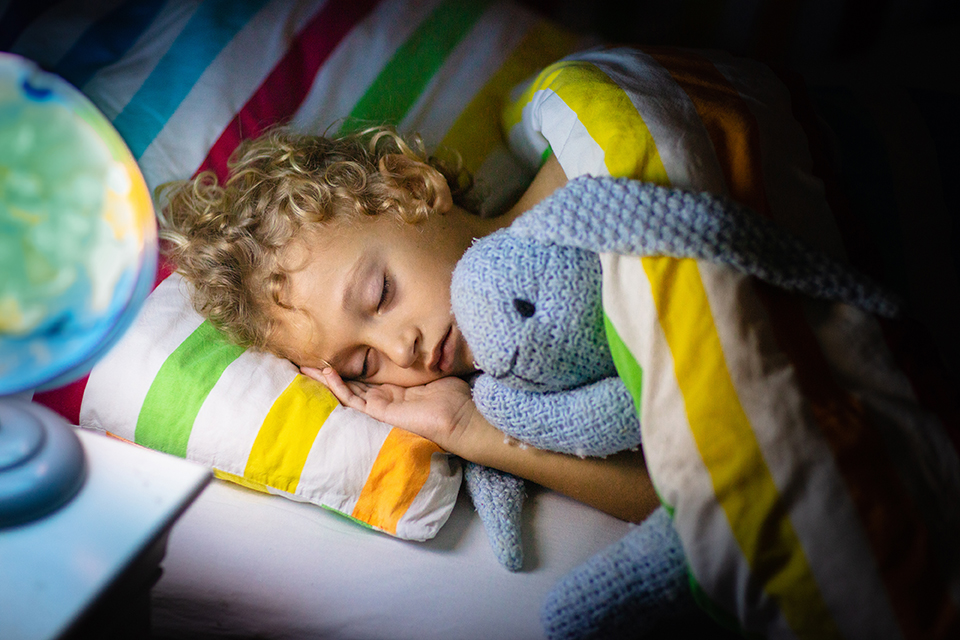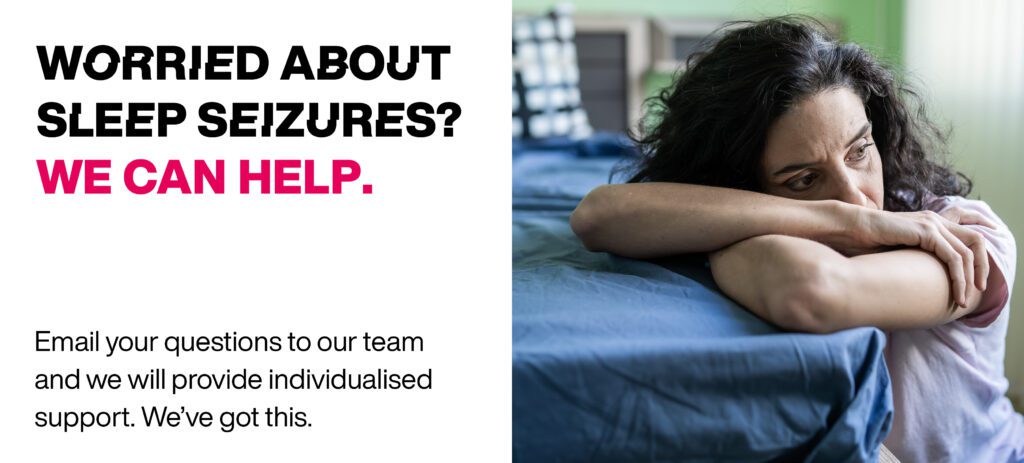Jump straight to the information you need
Epilepsy Action has more information on sleep, tiredness and fatigue.
Sleep-related-epilepsy
There are 3 main types of sleep-related-epilepsy:
- Seizures that only happen during sleep (sleep seizures)
- Seizures that happen during both sleep and whilst awake
- Seizures that happen very soon after waking up
Some epilepsy syndromes are known to have symptoms that are related to sleep, for example, Landau-Kleffner syndrome, Lennox-Gastaut syndrome or juvenile myoclonic epilepsy.
How can I tell if I am having sleep seizures?
For every 100 people that have epilepsy, 10 to 15 of these will have sleep-related epilepsy.
If you sleep alone, it can be difficult to know if you are having sleep seizures. You may notice some signs that you might have had a seizure in your sleep, such as:
- Unusual movements that wake you up
- Unusual sensations during your sleep
- Going to the toilet (incontinence) during your sleep
- Waking up and finding you are out of bed
- Waking up with injuries
- Waking up feeling confused
- Feeling very tired during the day
If you think you might be having seizures in your sleep, it is important to talk to your healthcare team about this. Your specialist may be able to arrange for you to have some further tests, for example, a sleep EEG to record your brain activity while you are asleep.
Alarms and monitors
If you think you might be having sleep seizures, setting up a video monitor or seizure alarm might be helpful.
There are different kinds of alarm available. The type you need will depend on the type of seizures you have. For example, some alarms are sensitive to movement. So if you have tonic-clonic seizures during sleep, then this type of alarm should detect them. There are other types of alarm available, but alarms will only be useful if there’s someone nearby that the alarm could alert.
How will sleep seizures affect me?
Sleep and epilepsy affect each other in a 2-way relationship. Tiredness and lack of sleep can be a seizure trigger for some people, and having seizures can lead to poor sleep and tiredness.
If you have a seizure during your sleep, it may affect your sleep for the rest of the night by making your sleep lighter and causing you to wake up more often.
There are several different stages of sleep including rapid-eye movement (REM) sleep and non-rapid eye movement (non-REM) sleep. The effect that sleep seizures have on you can depend on which stage of sleep you are in. REM sleep is important because it’s when your brain processes your emotions, stores your memories and relieves your stress. Non-REM sleep (restorative sleep) is important for restoring normal brain functions.
Some research has suggested that the impact of disrupted sleep might be greater in children with epilepsy. This is because sleep allows the brain to develop its processes and structure, and these are important for a child’s learning and development.
If you are having disturbed sleep due to sleep seizures or your epilepsy medicines, you could also ask your doctor to refer you to an epilepsy specialist for an assessment. If you are diagnosed with sleep seizures, the specialist can talk to you about possible treatment options. These could include changes to your epilepsy medicines, lifestyle changes, or other therapies to help manage your symptoms.
If your seizures aren’t controlled, try to catch up on any missed sleep, particularly in the day or two after a seizure.
You can also visit our sleep, tiredness and fatigue page for some suggestions.
SUDEP and sleep
Having epilepsy comes with certain risks. One of these is sudden unexpected death in epilepsy (SUDEP). This is when a person with epilepsy dies suddenly and unexpectedly, without any obvious cause.
Everyone’s risk of SUDEP is different, but things like sleeping alone and having tonic-clonic seizures can increase your risk.
The most effective way to reduce your risk of SUDEP is to have as few seizures as possible, especially if you have tonic-clonic seizures. Having fewer seizures will also reduce your risk of harm from status epilepticus or accidents.
To have as few seizures as possible, take your epilepsy medicines every day, exactly as they’ve been prescribed. If you don’t think your medicines are working for you or have side effects, talk to your epilepsy specialist so they can make changes.
Your doctor or epilepsy specialist nurse should talk to you about your own level of risk, and what you can do to reduce it. This might involve having night-time supervision or using a seizure alarm or monitor. Although this can’t guarantee someone’s safety during a seizure, some people with epilepsy have found using alarms and monitors helpful as a part of a risk management plan.
Epilepsy Action has more information about SUDEP.
Can I drive if I have sleep seizures?
If your seizures always start when you’re asleep, you may still be able to drive even if you continue having seizures. A seizure that starts during a daytime nap also counts as a sleep seizure.
Before they allow you to drive, the driving agency would need to be satisfied that:
- You’ve never had an awake seizure and
- You’ve been having sleep seizures for at least 12 months. The 12 months applies from the date of your first seizure.
OR
- If you stop having awake seizures, but still have sleep seizures, you can drive when you’ve been having sleep seizures only for at least 3 years. The 3 years is from the date of your first sleep seizure, after your last awake seizure.
Fatigue or extreme tiredness
Fatigue is a feeling of overwhelming tiredness, weakness or exhaustion that can be mental, physical or both. If you have epilepsy, you are more likely to be affected by fatigue than other people. This might be due to:
- The effect of having seizures
- Difficulty getting to sleep or staying asleep
- The side effects of epilepsy medicines
- Having another condition that can also affect sleep, such as depression or a sleep disorder
Epilepsy Action has more details on tiredness and fatigue.
Sleep disorders
People with epilepsy have a higher chance of also having a ‘sleep disorder’ than people who don’t have epilepsy. Sometimes it’s hard to tell if your disturbed sleep might be caused by sleep seizures, side effects of epilepsy medicines, or because you also have a separate sleep disorder such as sleep apnoea or insomnia.
Your doctor should be able to assess your situation and refer you for further tests if there is a possibility that you also have a sleep disorder. Getting the right diagnosis quickly if you have another sleep disorder can make a big difference to your seizure control and quality of life.
Managing your sleep seizures
Your epilepsy specialist will want to help find the right treatment for you.
It may be that you need to try more than one type of epilepsy medicine. Or your doctor may suggest changing the timing or dose that you take.
A review of studies looking at temporal lobe epilepsy found that surgery can be an effective treatment option. They also found that identifying and treating any additional sleep disorders helped, such as sleep apnoea.
Epilepsy Action has more information about sleep disorders and how to manage tiredness and fatigue.
Got more questions?
Our expert advisors can help you with any questions you might have about sleep seizures or anything else related to living with epilepsy.




